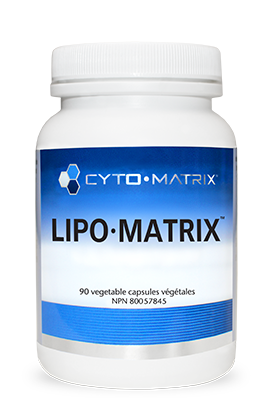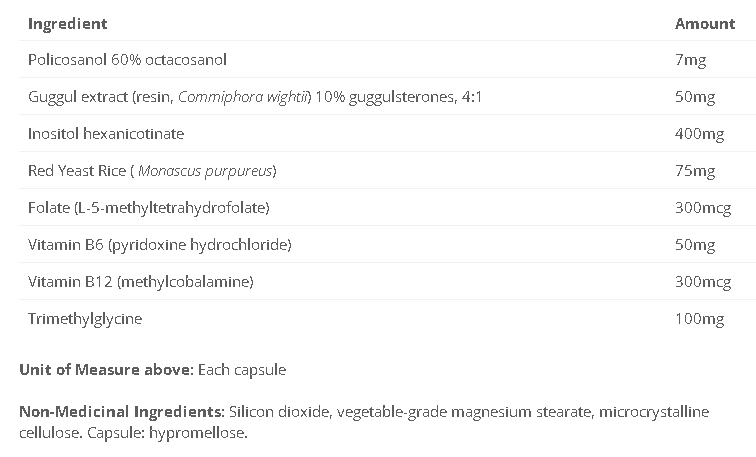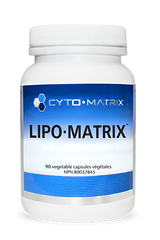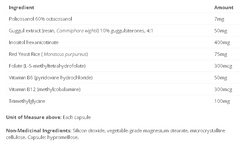



Description
x- Collectively supports a healthy cardiovascular system and aims to reduce the risk of cardiovascular events.
- Herbal extracts provided to synergistically reduce total cholesterol, LDL cholesterol, triglycerides and inflammation while increasing HDL cholesterol
- Vitamins B6, B12, folate and trimethylglycine support homocysteine detoxification and reduce the risk of cardiovascular events
Cardiovascular disease is one of the leading causes of death in Canada and is often referred to as the "silent killer" due to the absence of symptoms during disease progression. However, important cardiovascular risk factors have been identified such as unbalanced cholesterol levels, elevated triglycerides, and excess homocysteine. In addition to a healthy diet and regular exercise, specific nutrients and herbal extracts are beneficial in supporting these markers and a healthy cardiovascular system.
Policosanol is a mixture of long-chain saturated alcohols derived from the waxes of plants such as sugarcane and yams. Policosanol's beneficial effects on cholesterol have been explored in dozens of human clinical trials and it has been shown to be effective in lowering total cholesterol, reducing low-density lipoprotein (LDL), and increasing high-density lipoprotein (HDL), without significant effects on triglyceride levels. Policosanol is ultimately a safe and well-tolerated option for lipid balancing, even in populations with high use of concomitant medications.
Guggulsterones are the active medicinal component found in the gum resin of the mukul myrrh tree. Guggulsterones have the demonstrated ability to effectively reduce triglyceride levels by 10-20%, in addition to reducing total cholesterol levels. In fact, research has shown that guggulsterones are as effective as the prescription drug clofibrate at lowering blood cholesterol and triglyceride levels. Guggulsterone supplementation has also been shown to reduce inflammation in the body, as indicated by lower levels of C-reactive protein.
Red yeast rice contains several compounds collectively called monacolins, substances known to inhibit HMG-CoA reductase and cholesterol synthesis. However, red yeast rice also contains other active ingredients with beneficial effects on cholesterol. For example, monascin and ankaflavin have been associated with reductions in total cholesterol, LDL, and triglycerides independent of monacolins through increased cholesterol excretion into the blood and digestive tract. Overall, red yeast rice extracts have been extensively clinically tested to support the reduction of total cholesterol and LDL cholesterol levels in the blood.
Homocysteine is a normal metabolite of the methionine cycle, but high levels of this metabolite may increase the risk of cardiovascular damage. Hyperhomocysteinemia negatively affects endothelial function, vascular smooth muscle cells, connective tissue, clotting factors, and platelets. For this reason, it is important to effectively promote the recycling of homocysteine to methionine or its conversion to cysteine. This is achieved by ensuring adequate levels of folate, vitamin B6, vitamin B12 and trimethylglycine.
Inositol hexanicotinate, also known as vitamin B3, is another B vitamin with beneficial effects on the cardiovascular system.
system. Inositol hexanicotinate is different from other forms of vitamin B3 such as nicotinic acid in that it does not cause the typical "flush" reaction of the skin due to vasodilation.
Lipo-Matrix from Cyto-Matrix offers an evidence-based blend of these botanical extracts and nutrients to aid in the overall management of cardiovascular health.
Posologie
xInfos nutritionnelles
x- Choosing a selection results in a full page refresh.

